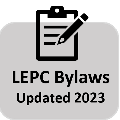-
HOW DO I
Apply For
Find
Pay
Water Testing

-
RESIDENTS
Health & Wellness
Senior & Assisted Living
Environment
Families & Individual Support
Financial Assistance
Library
Safety & Justice
Broadband

-
BUSINESS
Community Development
GIS Mapping
Ordinances
Requests For Proposals
Start A Business
Zoning, Planning & Land Information
Broadband

-
VISITORS
Campgrounds & Shelters
Downtown Guide
Hunting & Fishing
Parks/Facilities
Explore La Crosse

-
YOUR GOVERNMENT
County Board
Ordinances
Resolutions
Elections
Elected Officials
State
Facilities
Municipalities: Cities, Villages and Towns
- CITY OF LA CROSSE
- CITY OF ONALASKA
- TOWN OF BANGOR
- TOWN OF BARRE
- TOWN OF BURNS
- TOWN OF CAMPBELL
- TOWN OF FARMINGTON
- TOWN OF GREENFIELD
- TOWN OF HAMILTON
- TOWN OF HOLLAND
- TOWN OF MEDARY
- TOWN OF ONALASKA
- TOWN OF SHELBY
- TOWN OF WASHINGTON
- VILLAGE OF BANGOR
- VILLAGE OF HOLMEN
- VILLAGE OF ROCKLAND
- VILLAGE OF WEST SALEM
School Districts


Emergency Management
Local Emergency Planning Committee (LEPC)
Planning for the Safety of La Crosse County Residents in the Event of an Emergency
On October 16, 1986, the Superfund Amendments and Reauthorization Act (SARA) was signed into law. Title III of this act is also known as the Emergency Planning and Community Right to Know Act (EPCRA). This Act is to empower citizens and emergency
responders with the Right to Know what chemicals exist in communities where they live and work. It mandated planning for chemical emergencies and established a chain of command to assure that the requirements are met.
WHAT IS AN LEPC?
The Local Emergency Planning Committee (LEPC) for La Crosse County is mandated by Federal and State regulations to Plan and Mitigate for, Respond to and Recover from ALL Hazardous Materials emergencies. Numerous elements are integrated into this process and the assistance from many people is required to meet the requirements of the E mergency P lanning and C ommunity Right-to-Know Act (EPCRA).
The LEPC has representatives from specific areas that have knowledge and interests in assisting in environmental emergency planning, here are the groups:
|
|
LEPC Meeting Schedule:
2025 Meetings - February 19th; April 16th; June 18th; August 20th; October 15th
(9am-10am) Administrative Building, Room 100&101
These meetings are open to the public. We welcome your questions!
State of Wisconsin LEPC Work Group Newsletters
LEPC Newsletter - December 2024
LEPC Newsletter - September 2024
LEPC Newsletter - December 2023
LEPC Newsletter - September 2023
Mission Statement
Under EPCRA, the La Crosse County LEPC is the focal point for chemical emergency response planning and implementation in a community. The LEPC's key responsibilities are:
* Assisting local jurisdictions in developing hazardous materials emergency response plans
* Evaluating the community's need for resources to respond to hazardous materials emergencies
* Processing requests from the public for information on hazardous chemicals in their communities
© 2025 La Crosse County. All Rights Reserved.

